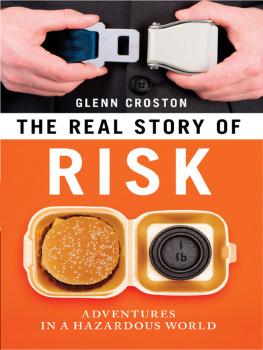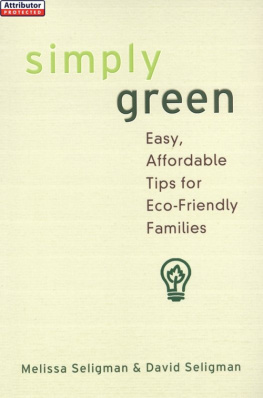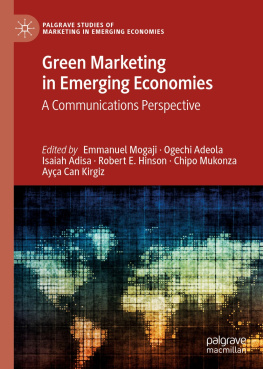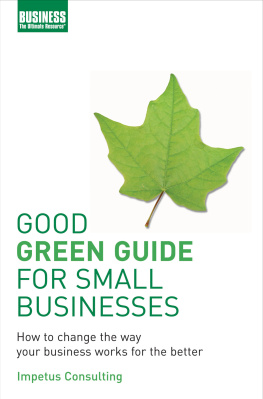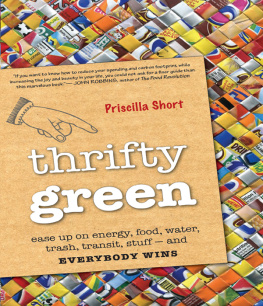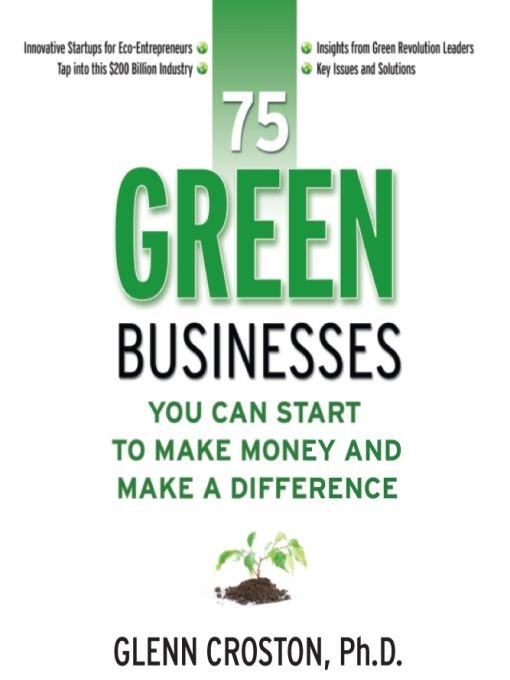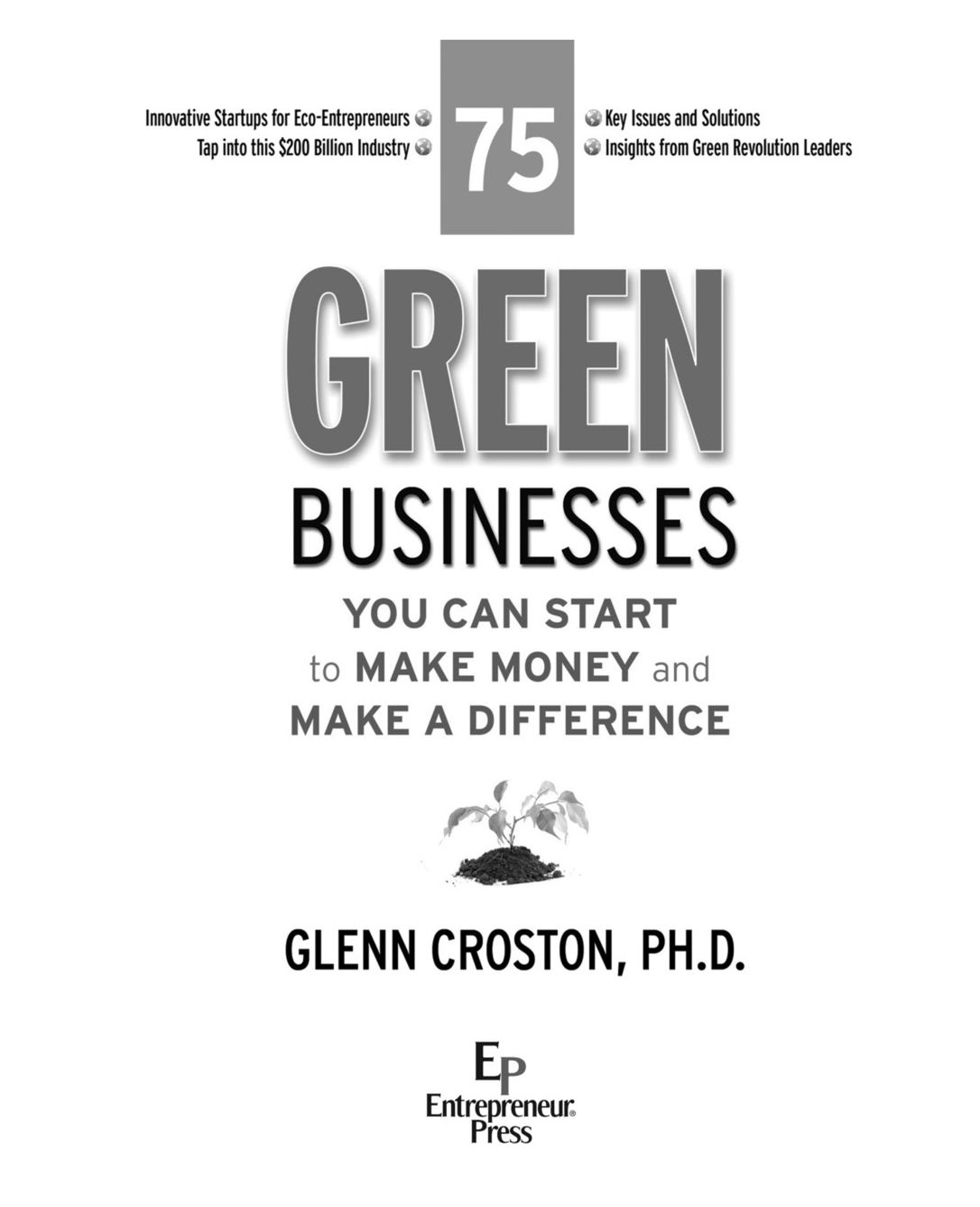Table of Contents
Praise for75 Green Businesses You Can Start to Make Money and to Make a Difference
75 Green Businesses is a compendium of opportunity for the next generation of entrepreneurs. Deeper in scope than its green title belies, Croston has developed a virtual barrel full of ducks to shoot when looking for new mission-driven business opportunities.
JOHN ROOK
FOUNDER AND PRESIDENT OF DWELL CREATIVE
75 Green Businesses is a comprehensive overview of the green-business revolution. This timely book highlights numerous ways in which people around the world, who are concerned about the environment, are making a difference. Croston needs to be commended for researching and presenting examples of innovative and credible business opportunities which contribute toward an environmentally sustainable Planet Earth!
ELIZABETH ISRAEL
FOUNDER AND PRESIDENT OF GREEN MICROFINANCE
Anyone wanting to be part of the swelling green wave is in luck with this book. Since I think the green wave is really a green tsunami, now is the time for anyone interested in being part of the rebuilding of the economy to buy this book. This can be your first step in building a greener America.
KIT CASSINGHAM
FOUNDER OF SAGE BLOSSOM CONSULTING
We are at a critical time as a species, a time of knowing the right path to take yet uncertain how to get there. The world our generation has inherited cannot simply be passed on to our heirs without the issues of sustainability addressed. In the near future, every career, every business and every job will address green concerns in some way. This must be the case if we are to survive.
In his new book, 75 Green Businesses, Glenn Croston provides us with this ever important direction of how to reach this important path. The book is divided into some telling and intriguing chapters, including: Energy, Waste, Food, Water, among others. Browsing through these pages will inspire some directly toward a new career and prompt others to invent new business models. Expect to see a dog-eared copy sitting on every shelf of the next generation of entrepreneurs.
ERIC COREY FREED
PRINCIPAL, ORGANICARCHITECT
AUTHOR OF GREEN BUILDING & REMODELING FOR DUMMIES
As you read this book, looking through the eyes of a man who sees not problems, but opportunities for new ways to inhabit our world, you cant help but get excited. Often I am asked by eager fans of sustainability, What can I do to make a difference? I have all this passion and energy, but I dont know where to start! Well, now theres a much better answer than Ive been able to give before. Quite simply, its this: Read this book, then take the first step. Reinvent the work you do and watch what happens. The inspiration youll find herein is worth its weight in gold (and sunshine!).
SARAH SUSANKA, ARCHITECT AND AUTHOR OF
THE NOT SO BIG HOUSE SERIES, AND THE NOT SO BIG LIFE
Acknowledgments
This book would not have been possible without incredible help from friends and family. I thank my wife Guadalupe for always being there, my daughter Gaia for her wisdom beyond her years, Thomas Howell for tireless critical insight, Konsuelo Howell for constant support in innumerable ways, and Rafael Petrone, Mike Dunn, and Rob Meadows for their insight and guidance. For helping me get started I owe thanks to Taylor Wilshire, Sharon Wampler, and Ray Smilor. I would also like to thank Karen Billipp of Eliot House Productions, and Jere Calmes and Courtney Thurman of Entrepreneur Press for seeing the books potential and keeping it on track. Finally, I thank the many green entrepreneurs who have been so generous with their time and thoughts. They are too numerous to mention, but by living the change they are creating a greener future for us all.
Preface
The biggest business opportunities of the 21st century are for green businesses solving environmental challenges such as climate change. The opportunities are as large as the challenges, and innovative entrepreneurs taking on these challenges are moving green from the fringes to Wall Street, Main Street, and everywhere in between. With the green economy estimated to be over $200 billion in the United States in 2005 (Natural Marketing Institute, 2006) and growing globally, going green is both good for the environment and a smart business move.
Going green means different things to different people, but it generally means reducing pollution; conserving resources and ecosystems; being energy efficient; and reducing climate change. For many people, being green also means being aware of social issues such as fair trade and labor practices. Green businesses ensure that the natural systems on which our lives and economies rely will be around for the long term, and provide an environmentally sustainable world with profitable and rewarding ventures.
The rapid growth of green business is seen in many fields. In response to the concern about the impact of food and agriculture on our planet and our bodies, sales of organic food have been growing 15 to 21 percent a year for more than a decade (Organic Trade Associations 2006 Manufacturer Survey). To fight climate change, reduce pollution, and lower our dependence on oil, businesses increased U.S. wind power capacity 45 percent in 2007 (American Wind Energy Association, AWEA 2007 Market Report, awea.org). Entrepreneurs are transforming the buildings where we live and work to be safer and more efficient as part of the booming green-building movement. The pattern is repeated over and over with startup businesses providing clean water, green clothing and services, efficient transportation; and many other solutions. Never before has there been such a broad range of opportunities for entrepreneurs with almost any background to do well in business and help the environment at the same time.
People around the globe are rolling up their sleeves and getting to work on solutions for habitat loss, air pollution, declining oil supplies, water pollution, and climate change. An estimated 30 percent of the U.S. adult population are considered Lohas (lifestyles of health and sustainability) and are spending money in ways consistent with the belief in the need for a greener world. Every day, more people are changing to more efficient light bulbs, buying more fuel-efficient cars, and doing whatever else they can in their daily lives to make a difference. Going green is not just a fad or a trend but a lasting change in how we live and do business.
In a major shift, the old war between business and environmental concerns is fading. Major corporations such as Wal-Mart, General Electric, and DuPont are greening their businesses to help the environment and their bottom line. British Petroleum (BP) is investing $500 million in a biofuels center as part of its transition from British Petroleum to Beyond Petroleum. Venture-capital investment in fledgling green companies grew 78 percent in 2006 with the expectation that green companies are a good investment and will continue to boom as key to business growth in the 21st century.
Going green also may be the best way to protect against the loss of business that may result from a globalized economy and other economic challenges. Former bastions of industrial strength are giving way to new industrialized powers, such as China and India, and this shift has eliminated or moved millions of jobs from the United States to other parts of the world. Developing green technologies and companies helps developed economies offset their diminishing role in old industries, and going green makes companies more efficient and more competitive when the economy slows.


